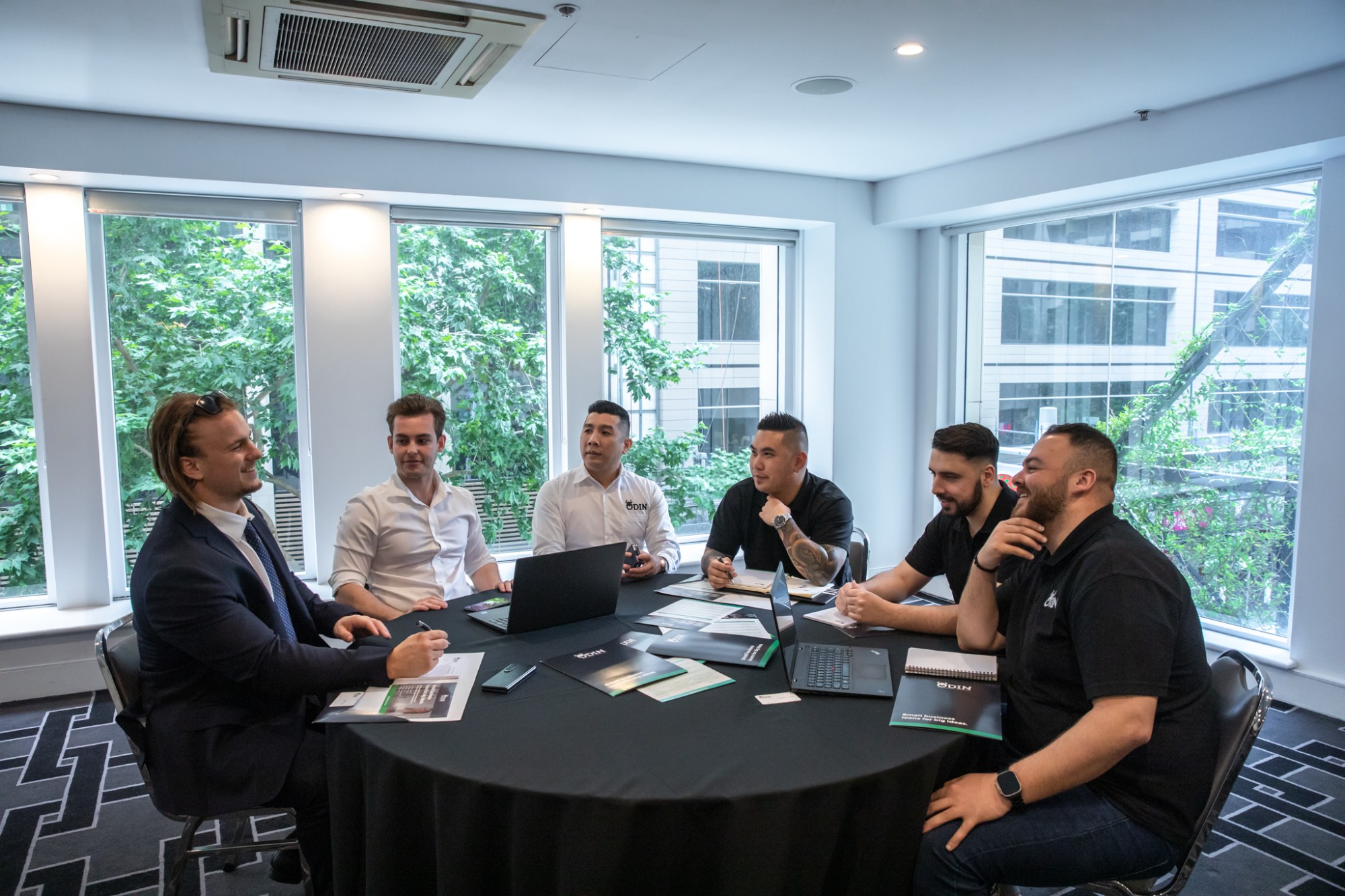
‘We are extremely fortunate to be dealing with funders who are open-minded and very genuine about wanting to help businesses.” - Declan Lewis
In contrast to the ‘cookie cutter’ mentality pervading the credit assessment of the larger financiers, Odin Business Lending believes that every enterprise needs to be assessed on its individual merits.
With this ethos in mind, the specialist broker to small to medium enterprises (SMEs) is not afraid to take on clients classed as subprime, or with an otherwise spotty credit history.
Odin’s book has grown at a spectacular clip since the business was founded virtually from scratch in 2020, says ODIN general manager, Declan Lewis
Having joined the ODIN team at its inception, Lewis says there was widespread defaulting during the pandemic period when Odin hung out its ‘open for business’ shingle.
He says that many of these businesses were “put through the wringer and had adverse events” through no fault of their own, such as tradespeople affected by the problems of large construction companies.
“We understand better than most that Aussie businesses need a fair go”, he says.
Lewis says Australian lenders have relied ‘far too heavily’ on the credit scores kept by the oligopoly agencies Experian, Equifax and Illion (formerly Dun and Bradstreet).
“It can be very restrictive and based on subjective measures,” he says. “For example, a consumer looking for a credit card might shop around and make multiple applications - and negatively affect their credit score. There’s a need for a more intuitive look.’’
While so-called ‘positive’ (comprehensive) credit reporting gives lenders a better view of the positive traits of a potential borrower, it’s still a crude and backward-looking device. “Other lenders and originators might not have touched these businesses, but we have the processes and spend the time to get to know the clients better, so we can present their proposals to lenders in the best possible light,” Lewis says.
“Ultimately, we understand where an SME has been and - most importantly - where it wants to go. It’s not a case of ‘your credit score is under a certain number so we can’t help you’.”
Currently, Odin is an intermediary for more than 80 lenders covering more than 900 products. These include well-known names such as Prospa, Bizcap and OnDeck.
“We are extremely fortunate to be dealing with funders who are open-minded and very genuine about wanting to help businesses,” Lewis says. In its short life to date, Odin has arranged $85 million of financing - often tailored arrangements - for more than 2400 clients.
While some lenders require collateral – typically property – Odin specialises in non-secured funding for purposes including business expansion, equipment purchases, working capital, promotional activity or an expansion opportunity. The loans are for anywhere between $5000 and $1 million, with an average amount of $35,000 and an 18-month duration.
“Our approvals are usually within 24 hours,” Lewis says. “We have had clients in a difficult position who say they need half a million dollars today and at 10am we have made it happen.” Lewis adds that the type of client will vary from sector to sector, depending on the point of the economic cycle.
“During COVID we were doing a lot for the food and retail industry, especially grocery suppliers who couldn’t keep up with stock demand and payment terms,” he says. “We’re also proud that we were able to support the smaller end of the construction sector through a time of upheaval.”
From a three-person office in 2020, Odin has grown to a complement of 34 full-time staff across four divisions. Over that period, Odin’s turnover grew from $100,000 at inception to $5 million last financial year. “At our current trajectory we are on track to more than double our gross revenue for the ’22-23 financial year,” Lewis says.
Named after the immensely wise god of Norse mythology, Odin recently opened a New Zealand office and Lewis says the business is “going great guns” there.
“Where we are bespoke is that the lending decisions are rarely made with security, it’s generally done with experienced analysts working through guidelines,” Lewis says. “Much of the knowledge is industry-specific. A retail butchery will have considerably different cash flow, opportunities, strengths and weaknesses than a carpenter.
“We don’t put all businesses in the one basket; we look far deeper to understand the industry needs and how the sector fits in the economy.” Lewis says Odin operates on four core values: family, respect, integrity and ensuring prosperity for SMEs.
Reflecting this, in the September quarter defaults and delinquencies across Odin’s book were 50 per cent lower than expected. “Even at the anticipated rate we were still under the market and that comes down to helping customers achieve their goals,” he says.
Lewis adds that Odin is not a “set and forget” originator but remains in contact with clients throughout the life of their loan.
“No one client ever remains where they started out,” he says. “Over the time they are likely to have bitten the bullet and repaid their debt, so we will look at better solutions to help them to continue to move forward.


